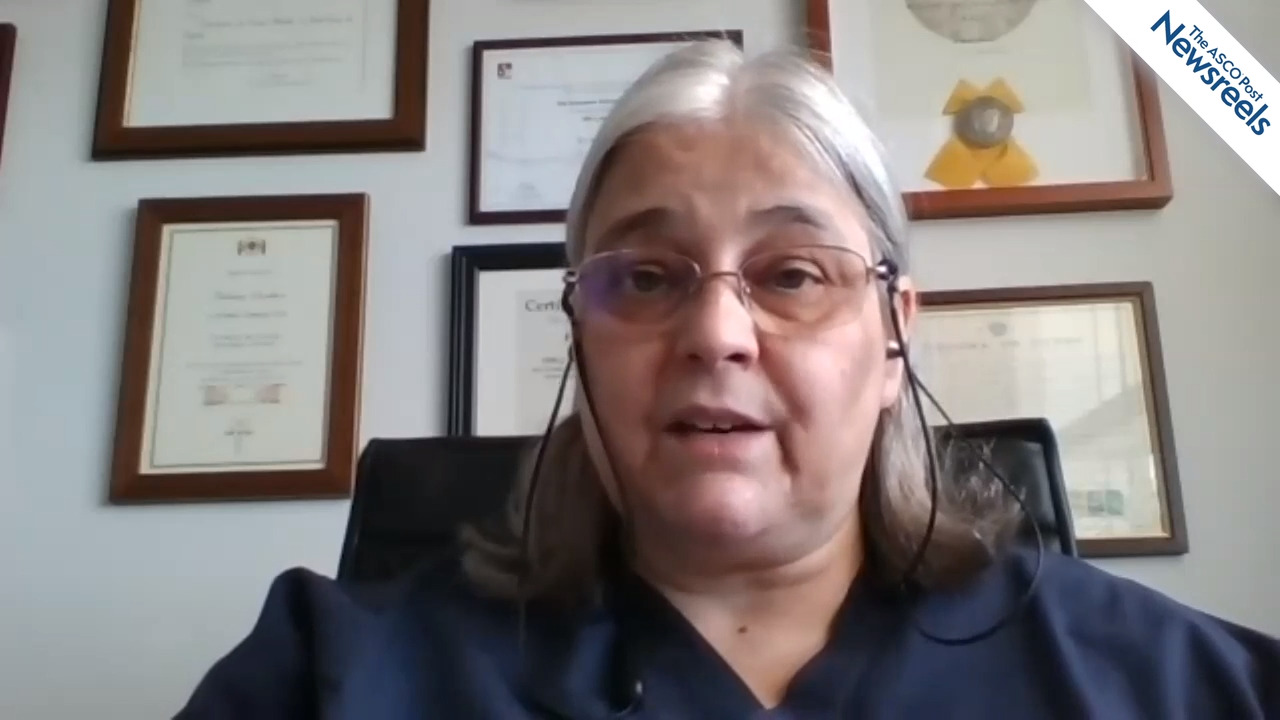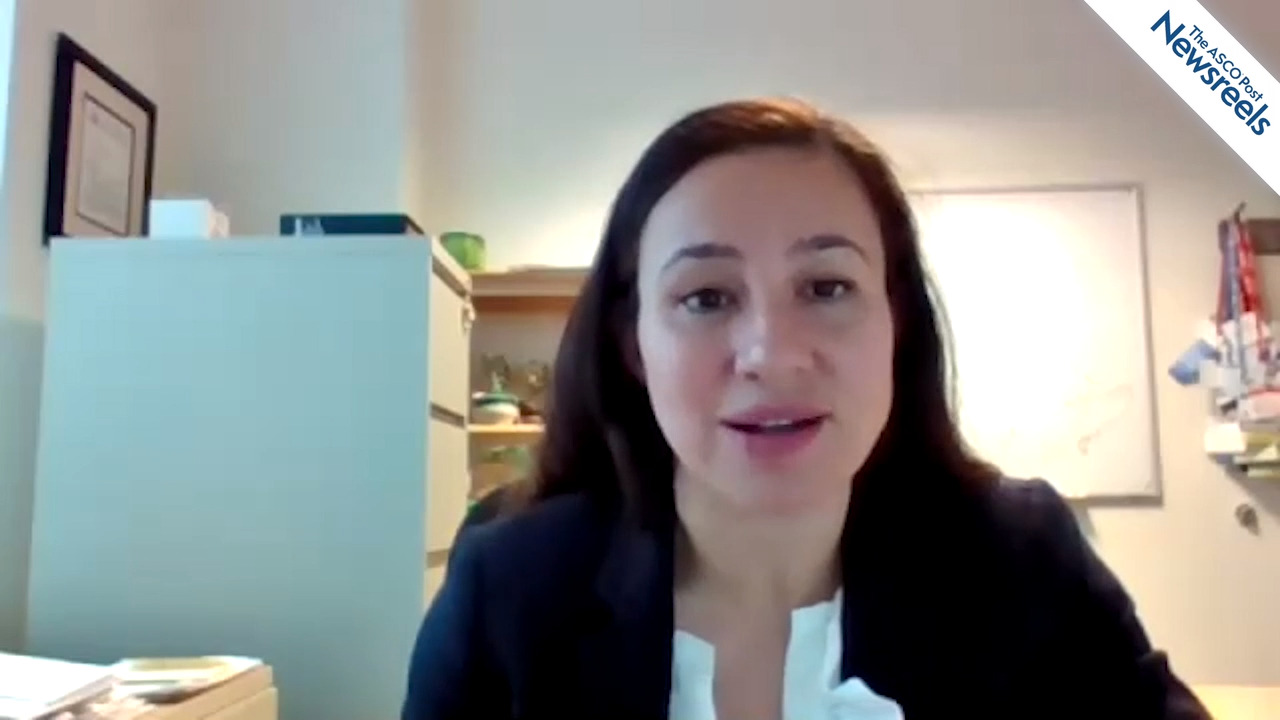Lourdes Gil Deza on Caring for Transgender Patients With Cancer
ASCO20 Virtual Scientific Program
Professor Lourdes Gil Deza, of the Instituto Oncológico Henry Moore, Buenos Aires, discusses her findings on the shortcomings of medical training when it comes to treating transgender patients, and the need to deepen clinical and communication skills to assist this population (Abstract 11002).
The ASCO Post Staff
Michael J. Morris, MD, of Memorial Sloan Kettering Cancer Center, discusses phase III data from the CONDOR trial, which showed that PSMA-targeted PET scans detected and localized occult disease in most men with biochemically recurrent prostate cancer presenting with negative or equivocal conventional imaging findings (Abstract 5501).
The ASCO Post Staff
Fatima Cardoso, MD, of Lisbon’s Champalimaud Cancer Center, discusses the long-term results of MINDACT, a large prospective trial showing the clinical utility of the 70-gene signature MammaPrint for adjuvant chemotherapy decision-making. The primary distant metastasis–free survival endpoint at 5 years continued to be met in chemotherapy-untreated women with clinical-high/genomic-low risk disease (Abstract 506).
The ASCO Post Staff
As Thomas Powles, MD, PhD, of Queen Mary University of London, prepares to deliver his late-breaking presentation at the ASCO20 Virtual Scientific Program (LBA-1), he talks with Christopher Sweeney, MBBS, of Dana-Farber Cancer Institute, about current therapy: PD1/PDL1 inhibition in second-line treatment and as monotherapy in the first-line setting, as well as the concept of maintenance switch.
The ASCO Post Staff
Roy S. Herbst, MD, PhD, of Yale Cancer Center, discusses data from the ADAURA study, which showed that compared with placebo, osimertinib as adjuvant therapy after complete tumor resection reduced the risk of disease recurrence or death by 79% in patients with non–small cell lung cancer (Abstract LBA5).
The ASCO Post Staff
Rana R. McKay, MD, of the University of California, San Diego, discusses the results of a phase II trial of intense neoadjuvant hormone therapy followed by radical prostatectomy in men with high-risk prostate cancer. The data show that 21% of patients had a favorable pathologic response (Abstract 5503).





